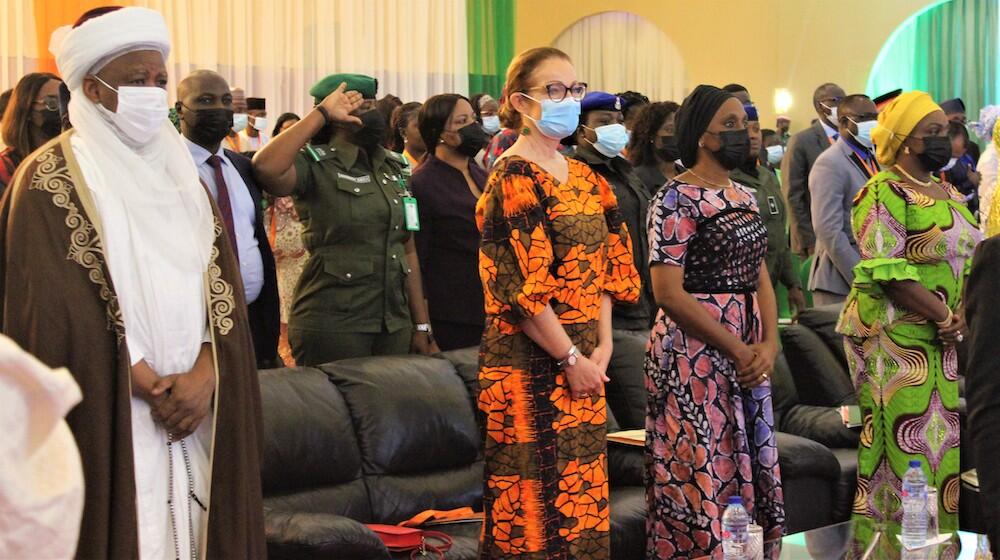The report provides a comprehensive overview of violence, child marriage, genital mutilation, the situation of people with disabilities and fistula in Nigeria.
The report extracts data that helps to understand the gender dynamics of the country and allows programs to plan according to needs.
Some of the most revealing data are:
77% of the women were mutilated as infants.
80% of people with disabilities have experienced some kind of abuse.
Over 90% of the women experiencing violence either do not report their experience to anyone or inform their parents only.
33% of participants noted that women living with obstetric fistula live with the stigma and consequent rejection.
25% of the women (aged 18-49) were married or in union before their 18th birthday.
The document also offers recommendations in the different areas, among which the following stand out:
The government urgently needs to demonstrate the political will to accelerate actions to end SGBV in the country. In particular, increased commitment to implementing existing policies and frameworks that promote women's rights.
Improve education outcomes for girls and women, and promote gender equality in education.
Targeting women with disabilities (WWDs) with inclusive, acceptable, and subsidized forms of education from basic to tertiary level Implementation of economic empowerment programs for PWDs, especially WWDs.
There is an urgent need to address child marriage through a multi-sectoral approach, including other UN Agencies, to ensure adolescents and girls are empowered and educated to complete at least secondary school education and entrepreneurship skills acquisition training.
Politicians, traditional and religious leaders and representatives of ministries attended the event. Like the Federal Ministry of Woman Affairs, Finance, Youth, Federal Ministry of Works and Housing and the first lady of Sokoto State, Ms Hajiya Mariya Aminu Tambuwal, who closed the event with a motivating speech encouraging work to end the violence suffered by women and girls throughout the country.
Also, some representatives from various embassies assisted, such as the Canadian High Commission, the Spanish embassy, the Danish embassy, and the embassy of Ukraine, Syria, China, and Mexico, among others. Likewise, numerous UN agencies, WHO, UNESCO, UNODC, and UNODE.
The Country Representative of UNFPA Nigeria, Ulla Muller, took the opportunity to remark that "I like to take this opportunity to call on prioritize ending Sexual, Gender-based violence. We owe it to the survivors. It is time to stand up for them". Also, thanked the Canadian High Commission for its significant contribution, which is necessary for this type of study to see the light.


